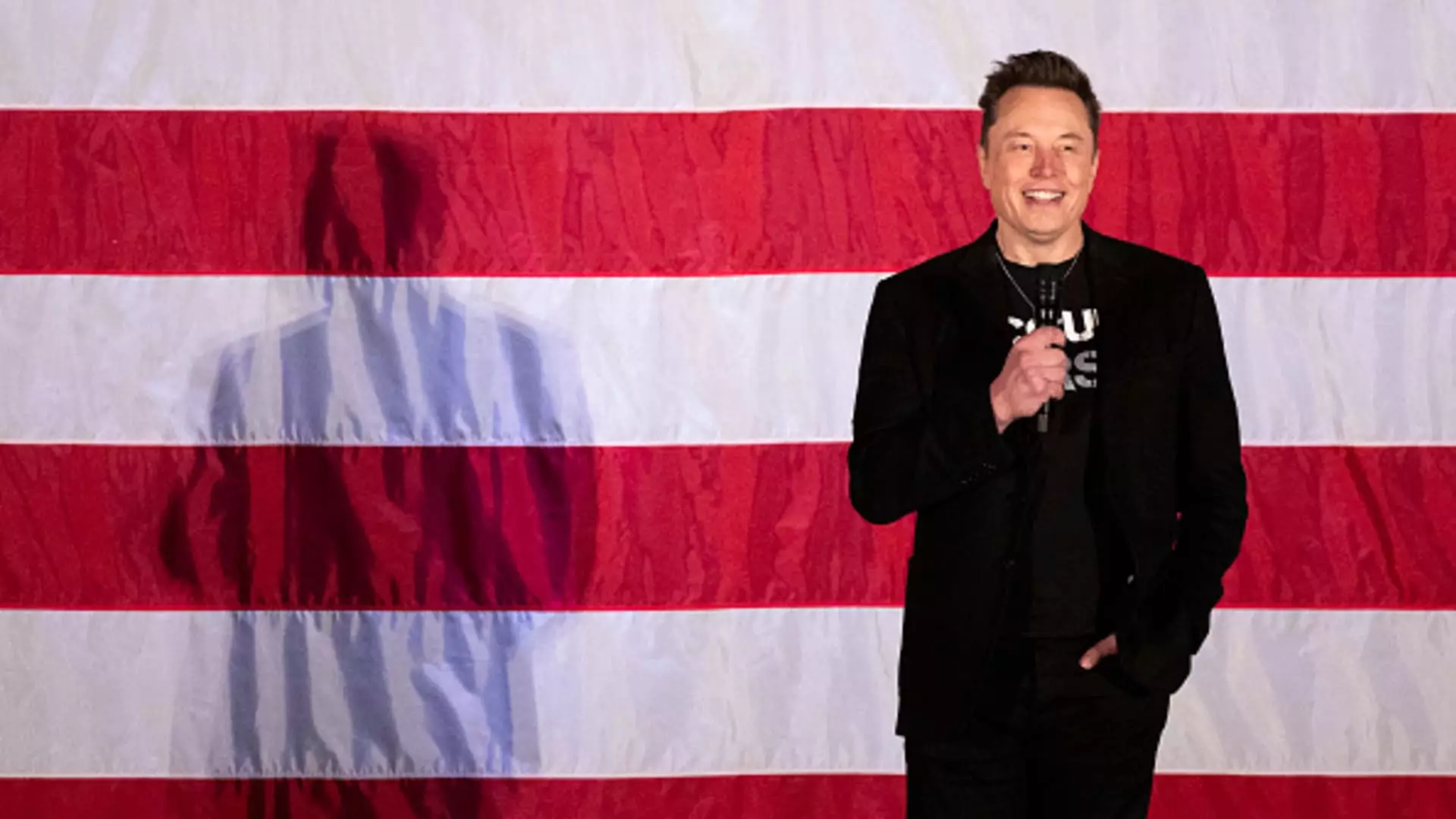In a high-profile controversy, the Philadelphia District Attorney’s Office has initiated legal action against Elon Musk and his political action committee, America PAC, over a substantial $1 million giveaway aimed at registered voters in swing states. The lawsuit, filed by DA Larry Krasner, charges that this initiative constitutes an illegal lottery designed to influence the ongoing presidential election. As Musk backs Republican nominee Donald Trump against Democratic nominee Kamala Harris, questions about electoral integrity and ethical campaign practices are front and center.
The crux of the lawsuit hinges on claims that the America PAC’s giveaway violates both state and federal election laws. The suit articulates that the $1 million sweepstakes essentially entices voters to provide personal information while mingling political pledges with the lure of financial reward. Krasner’s position is reinforced by a prior warning from the U.S. Department of Justice, stating that such a sweepstakes could breach federal election regulations. This legal tussle serves as a vital reminder of the complexities surrounding campaign financing and voter influence in the digital age.
In Krasner’s view, the initiative represents not just a serious legal concern but a fundamental threat to electoral integrity, characterizing the operation as an “unlawful lottery.” Under Pennsylvania law, the operation of lotteries is strictly regulated by the state government, which includes stipulations for transparency and advertisement practices. Musk’s approach, as highlighted in the lawsuit, obfuscates the legal delineations between permissible campaign activities and illicit lotteries.
Musk’s strategy aims to galvanize voter engagement by making political participation appear financially rewarding. However, this tactic could backfire, as it raises ethical questions about the sanctity of the electoral process. The lawsuit claims that Musk’s initiative lulls voters into a false sense of security regarding their personal data; they are encouraged to submit sensitive information—like their address and phone number—under the guise of participating in a political movement.
While the allure of winning a substantial prize may seem innocuous, the underlying message is troubling. By intertwining financial gain with political support, Musk risks trivializing serious electoral engagements. It poses a broader question: how far can monetary incentives go in obtaining political allegiance without crossing legal and ethical boundaries?
The situation has not gone unnoticed by other political figures. President Joe Biden’s reaction—quipping “Tell him I’m registered, a million dollars”—captures a mix of humor and exasperation regarding the situation. His subsequent assertion that the giveaway is “totally inappropriate” highlights a growing consensus among some political observers that such fundraising tactics could be harmful to the integrity of the electoral system.
Legal experts have weighed in, suggesting that Krasner’s lawsuit may set a significant precedent regarding campaign finance practices. The case raises essential questions about the regulatory powers of states in overseeing political fundraising methods. If the lawsuit proves successful, it could lead to increased scrutiny and tighter regulations on how PACs engage voters.
While the preliminary hearing on the injunction is set to occur soon, the broader implications of this legal battle are significant. This incident may serve as a catalyst for a nationwide reevaluation of how political action committees interact with voters.
Additionally, it underscores an urgent need for more explicit regulations governing online fundraising and engagement tactics that could sway public opinion through financial incentives. As the line between lawful campaign practices and illegal lotteries blurs in an increasingly digital and complex political landscape, establishing clear guidelines will be crucial in maintaining the integrity of the electoral process moving forward.
Ultimately, this legal conflict is not merely about a monetary giveaway; it encapsulates the ongoing challenges of ethical campaigning in a rapidly evolving political landscape. As electoral processes adapt to the realities of contemporary digital engagement, finding the balance between voter engagement and ethical practices will be of paramount importance. The outcome of this lawsuit could redefine the ways in which political commitments are incentivized and regulated, setting critical precedents for future elections.


Leave a Reply